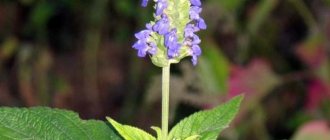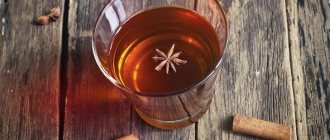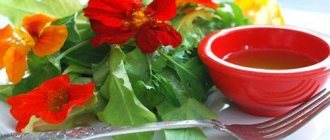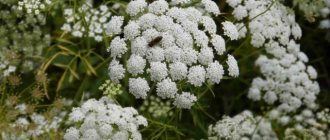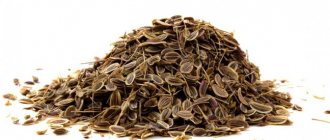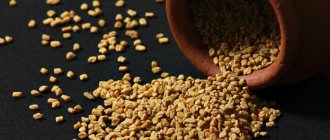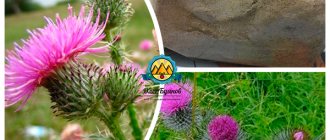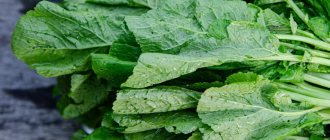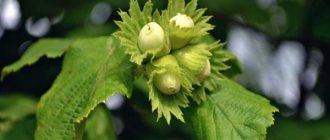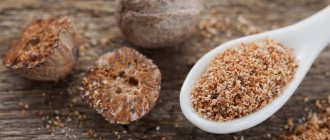For centuries, humanity has actively used anise to treat a variety of diseases. The greenish seeds of this plant were highly valued in Ancient Greece and Rome, and in the East they were even used to pay taxes. Today, anise seeds help people around the world fight various diseases, ranging from digestive system disorders to low libido.
What is anise?
Common anise, Pimpinella anisum, Anisum vulgare, Anisum officinarum, Anise - this is all the name of one plant, which, however, should not be confused with another anise, Chinese, also known as true star anise [1]. It is the Chinese plant that produces star-shaped fruits. Now we are talking about a completely different grass. The fruit of anise is a seed called caraway.
Content:
- What is anise?
- Active Ingredients
- Anise: benefits and harm to the body
- Other beneficial properties of anise
- Dosages
- How to prepare seeds
- Anise oil
- Common anise tea
- Other Anise Recipes
- Anise in cosmetology
This herbaceous plant belongs to the celery family and can grow up to a meter in height. From thin spindly roots sprout fluted stems and leaves that form feathery lobes. In spring, white flowers with a delicate sweet aroma appear on the plants. In late August - early September, seeds form from them. The native lands for this plant are Egypt, Asia Minor, Greece. Although nowadays, if favorable conditions are created, anise can grow in almost any corner of the Earth.
What is useful and what does anise treat?
Since ancient times, anise has been widely used to treat various diseases. The seeds of the plant have become especially popular. 100 g of seeds contain a daily dose of copper and manganese, as well as ½ of the daily dose of iron. That is why anise can be used as a prophylactic. It perfectly strengthens the immune system and normalizes digestion. The beneficial properties of anise for the human body include:
- getting rid of insomnia;
- anti-inflammatory effect;
- improvement of visual function;
- relieving spasms and pain;
- normalization of kidney function;
- sedative effect;
- improvement of skin and hair condition;
- antimicrobial and antiviral effects;
- acceleration of regenerative processes;
- treatment of skin diseases;
- appetite stimulation;
- getting rid of flatulence;
- improving the functioning of the heart muscle;
- antiparasitic effect;
- normalization of intestinal function.
Anise is used as an active ingredient in some deodorizing products.
What are the benefits of anise for women?
Due to its antispasmodic effect, anise is often used to relieve menstrual pain. Anti-inflammatory and diuretic effects allow it to be used for the treatment of genitourinary infections. The rejuvenating effect of the plant is important in the fight against age-related changes. The plant is often used to make cosmetics. During breastfeeding, anise is recommended to be used to improve lactation.
Important! In the third trimester of pregnancy, women are sometimes recommended to use anise to stimulate labor.
What are the benefits of anise for men?
The beneficial properties and uses of anise are also in demand among men. It is often used to treat erectile dysfunction. It also has a beneficial effect on the emotional background and improves appetite. Anise is recommended for use by men whose activities involve heavy nervous stress. It helps them improve their immunity and physical stamina.
Active Ingredients
Anise seeds are 18% protein, 8-23% fat, 2-7% essential oils, 5% starch, 12-25% fiber, the rest moisture [2] .
The seeds have a delicious aroma due to the high concentration of anethole essential oil. They also serve as a source of iron, magnesium, calcium, zinc, manganese, potassium, and copper. These minerals are essential for maintaining heart function, proper blood circulation, bone health, and also help convert food into energy. The B vitamins contained in anise seeds are important for brain function.
Anise: benefits and harm to the body
The history of human use of anise as a medicine with a spicy aroma goes back at least 4 thousand years. As historians suggest, it all started from Egypt. There, according to ancient records, the plant was used as a diuretic and to treat toothache. Ancient Greek medical records mention anise as a respiratory aid, an analgesic, a diuretic, and a thirst-relieving herb [3].
The era of commercial use of caraway oils began in the 1800s. Then anise was noticed by manufacturers of cosmetics and detergents. In the food industry, it is known as a spicy additive to a wide variety of product categories, including alcoholic beverages, dairy products, jellies, puddings, meats, and candies.
Anise essential oil, as well as teas made from it, are widely used in medicine. For what purpose? This is what we will now try to understand.
Medicinal properties of anise [4]:
- facilitates expectoration;
- relieves bloating (including in children);
- acts as an antispasmodic;
- works as an antiseptic;
- soothes coughs in bronchitis and asthma;
- relieves pain from laryngitis and pharyngitis;
- relieves insomnia;
- stimulates appetite;
- relieves abdominal cramps;
- reduces nausea.
In addition, anise oil is used in folk medicine to treat head lice, scabies, and psoriasis. For nursing mothers, this remedy is suitable for increasing lactation [5].
ethnoscience
Healers actively use anise seeds to treat various types of diseases. Medicinal teas, tinctures, and decoctions are prepared from them.
Tea
The drink is popular in different countries. You will definitely be offered it as a tonic if you visit the Middle East.
In Europe, it is used to treat diseases, improve lactation, and intestinal constipation. The tea has a sweet aftertaste and a delicate herbal aroma.
Preparation:
- anise seeds – 1 tsp;
- a glass of boiling water;
- let it brew for 10 minutes;
- strain;
- optional - sugar or honey.
Dry preparations for this drink can be purchased at pharmacies.
Its homeopathic properties make it easy to cope with such body disorders as indigestion, immune deficiency, decreased potency levels, insufficient phlegm excretion during bronchitis, and menstrual pain.
Decoction
Has a diuretic effect. Treats sore throats, bronchitis, eliminates odor from the mouth. Increases lactation. Reduces severe pain.
Recipe:
- anise seeds - 2 teaspoons;
- a glass of boiling water;
- 30 minutes in a steam bath;
- strain and cool;
- sugar – 1 tsp.
Drink three times a day. Single dose – 2 tables. lie
Infusion
Effectively acts on the normalization of the pancreas and liver. Helps eliminate insomnia and constipation. Will get rid of wrinkles.
Recipe:
- crushed fruits – 1 tsp;
- a glass of boiling water;
- leave for 15 minutes.
Drink before meals 4 times a day. For constipation, a single dose is 2 tables. l. Stomach pain – 1/4 cup. An infusion mixed with warm milk and honey will help with insomnia.
Other beneficial properties of anise
In addition to the mentioned medicinal effects, other properties of this plant are known. In particular, due to its antibacterial effect, anise is included in some toothpastes. Its anti-inflammatory properties have been compared to the effect of aspirin.
Thanks to its antioxidant properties, anise essential oil protects DNA cells from free radicals and prevents the formation of malignant tumors.
There is an opinion that anise can lower cholesterol. A 60-day experiment showed that daily consumption of seeds in powder reduces blood sugar levels by 36%, and also regulates the concentration of cholesterol and triglycerides. Crushed cumin seeds applied to the forehead, neck or temples relieve headaches, particularly during migraine attacks. Experiments on rats have shown that anise promotes the absorption of iron, thereby serving as a preventative against anemia [6].
This plant also has sedative properties. Anise contains thymol, linalol, terpineol and eugenol, which reduce the appearance of nervousness and anxiety.
Interestingly, cumin (seeds) belongs to the group of aphrodisiac plants. In addition, it has mild laxative and diuretic effects [7].
In combination with sassafras oil, caraway seeds act as a means to destroy insect pests (moths, bedbugs, cockroaches, lice) [8]. Fishermen add anise to their bait.
In the food industry, it is added as a seasoning to meat, fish, soups and sauces, pickles and confectionery.
Anise oil
In general, the essential oil obtained from the seeds of common anise has greater activity and richness than the aromatic substance obtained from star anise. Anise oil is produced by steam distillation, while it retains all the beneficial substances in high concentration, it has a yellowish color and can retain its properties for more than 5 years.
In the retail chain there are sometimes counterfeits of quite expensive anise oil. Therefore, you need to purchase products from trusted sellers, carefully studying the label pasted on the bottle, where the detailed composition of the product must be indicated.
In addition to using oil in aromatherapy and cosmetology, it can be:
So that the use of anise essential oil does not cause an allergic reaction, which is understandable due to the presence of a large number of biologically active substances in its composition. Therefore, before starting the first procedure, it is imperative to conduct a test for individual tolerance to the drug, which includes an anise component. In addition, it is not recommended for use in patients suffering from thrombocytopenia.
Dosages
Today there are no clearly defined norms for the consumption of anise, just as there are no calculated daily norms for it. Most often, 0.5 to 2 grams of seeds or 0.2-0.3 ml of essential oil are used to treat digestive system disorders.
In the form of an infusion, usually take 1-2 teaspoons of crushed seeds per glass of boiling water. In the form of oil, herbalists advise consuming 1 drop of the substance with half a teaspoon of honey.
This plant is considered safe for humans, however, abuse of seeds or essential oil can cause side effects in the form of an allergic rash, difficulty functioning of the respiratory and digestive systems. An overdose of essential oil causes vomiting, convulsions, and sometimes pulmonary edema, paralysis, mental disorders, and coma.
The main contraindication for taking anise preparations is pregnancy, since this plant has abortifacient properties.
Anise oil
Anise oil is obtained from the seeds of the herb through steam distillation. The highest quality product is obtained from ripe seeds located in the center of the umbrella. The range of uses of anise oil is extremely wide - from the food industry to pharmacology.
The chemical composition of anise oil varies depending on where the herb grew. In most cases, 80-90% of the substance is anethole, which gives the product a specific odor, as well as some other chemical elements [9].
Anise oil has antibacterial, antifungal, antioxidant, and expectorant properties. It is often included in cough syrups and lozenges. Thanks to its special composition, it loosens mucus in the respiratory tract, making breathing easier for asthma and ARVI. Antibacterial properties make it effective against Staphylococcus aureus, Streptococcus, and Escherichia coli. The list of fungi that are afraid of anise also includes Candida. The relaxing properties of the oil help relieve cramps and spasms of various origins.
How to make anise oil
Industrial production of anise oil is a labor-intensive, multi-step process, but small portions of the product can be made at home. For this you will need:
- cumin seeds (dry);
- carrier oil (for example, almond);
- mortar for grinding seeds;
- gauze;
- glass container.
Dry seeds should be crushed in a mortar until the oil comes out (but not to a powder consistency). Pour into a glass container and add the base oil (the liquid should completely cover the seeds). Close the container tightly and place in the sun (this will speed up the release of oil from the crushed seeds). Strain through cheesecloth. Store prepared anise oil in a cool, dry place.
Common anise tea
When the disease has tightened the throat and it is difficult to swallow, a persistent cough of any origin (bronchial, allergic, asthmatic or after smoking), anise tea will help get rid of unpleasant symptoms. It is prepared from fresh or dry seeds of the plant.
Another beneficial property of tea is the treatment of flatulence, getting rid of the feeling of heaviness after overeating, and, like ginger, anise relieves nausea.
If you sweeten your drink with honey, you can get an alternative to high-calorie drinks, and the antibacterial properties of anise will freshen your breath after drinking tea.
Seed tea recipe
To prepare anise tea, you will need a teaspoon of seeds and a glass of boiled water. You need to put the infusion on the fire and boil for no more than a minute. Let it brew. You should drink a glass of anise tea after each main meal. This decoction is effective for bronchitis, asthma and slow digestion.
Anise root
Along with herbs and seeds, anise root can also be used as a medicine and seasoning. It is part of pharmacological preparations intended to strengthen the cardiovascular system; together with celery root, it is added during the preparation of broths to give them a pleasant, rich aroma.
Anise root is very effective as a remedy for getting rid of bad breath. To do this, it is finely chopped, combined and gently mixed with lemon zest and mint leaves. The resulting mixture is thoroughly chewed and swallowed without drinking water. After this, you need to hold a piece of ginger or anise root and bay leaf in your mouth. This procedure will help get rid of even such a corrosive odor as tobacco.
Other Anise Recipes
General strengthening tincture
Pour 40 g of seeds into a glass of vodka. Leave for a week to 10 days. Take 20-25 drops three times a day.
Mouthwash infusion
2 tsp. Mix the seeds with a glass of boiling water. After an hour, strain. Rinse your mouth and throat several times a day.
Cumin decoction
Pour 20 g of cumin seeds into 200 ml of boiling water. Cook for 15 minutes, then leave for another 20 minutes. Strain, add 20 g of honey and the same amount of cognac. Take 1 tablespoon warm three times a day.
Herb Anise: use in medicine
Anise for throat and laryngitis
For the treatment of throat diseases, the following infusion is recommended. Take one teaspoon of anise fruit (crushed), brew a glass of boiling water, put on low heat for 15 minutes, then strain through cheesecloth. Take 3-4 times a day 20 minutes before meals, 2-3 tablespoons. The infusion relieves dry throat and eliminates hoarseness.
Anise for cough
Essential oil is included in the formulation of lollipops and cough syrups, including for children, and is used for inhalation. It is also included in pharmaceutical anti-asthmatic medicines and some other medications.
Coughs that arise from colds, bronchitis, whooping cough and tracheitis are treated as follows. One teaspoon of dry anise is poured into a glass of boiling water, left for 30 minutes, then filtered and taken before meals, 3 times a day, 1/4 cup.
What are the benefits of anise for weight loss?
Anise is an effective remedy for weight loss. The effect is achieved by reducing appetite. For the purpose of losing weight, it is recommended to use a decoction of seeds: 2 teaspoons of seeds, pour 1 glass of boiling water, 30 minutes. insist in a water bath, cool for 10 minutes, then filter and add 1 table. lie Sahara. There are 2 tables inside. lie 3-4 times a day before meals.
We also recommend: The benefits and harms of tea with oregano
Other medicinal properties of the anise plant and additional effects on the human body
Nervous system
- For headaches and neuralgia, it is recommended to chew anise seeds. They can also be brewed with the addition of fennel and cumin. This tea relieves nervous tension.
- It has a general stimulating effect on the human body and increases performance.
The cardiovascular system
- Eliminates symptoms of tachycardia, normalizes blood pressure.
Respiratory system
The benefits of anise are undeniable for inflammatory diseases:
- diaphoretic, antipyretic, expectorant effect - decoction: pour 1 teaspoon of ground seeds into one glass of water, boil for 20 minutes, cool and strain. 0.25 cups orally 3-4 times a day before meals. Also useful for bronchial asthma.
Digestive system
- anise infusion is used to stimulate the gastrointestinal tract, so it is recommended to use it after a hearty meal in case of feeling of heaviness in the stomach;
- effective against flatulence, constipation;
- has a positive effect on the functioning of the pancreas and liver.
Reproductive system
- eating common anise seeds enhances potency;
- When menstruation is delayed in girls, during painful menstruation, and also to increase libido, it is recommended to take a decoction: 4 teaspoons of seeds/200 ml of water, boil for 5 minutes, strain. There are 2 tables inside. lie 3 times a day;
- infusion: 1 teaspoon of fruit / 1 tablespoon. boiling water, leave for 30 minutes, strain and drink 0.25 cups 3 times a day before meals. Useful for diseases of the uterus,
- unlike star anise, it can be used to stimulate lactation in breastfeeding women (also anise oil). What is the difference between anise and star anise, read on a separate page.
- with sexual impotence, frigidity.
We also recommend: Properties and uses of marjoram essential oil
Urinary system
- for oliguria (decreased amount of urine), as a diuretic - a decoction: pour 2 teaspoons of anise fruit into one glass of boiling water, then leave in a water bath for 30 minutes, cool and strain, then add 1 tbsp. lie Sahara. 2 tables each. lie orally 3-4 times a day before meals;
- for inflammatory processes of the urinary tract and renal colic - infusion (how to prepare it - see above in the section on the reproductive system);
Leather
- essential oil of anise is excellent in caring for dry, sagging skin;
- Pour 1 teaspoon of anise flakes into 0.5 liters. boiling water, leave for 1 hour, then strain. Take 0.5 cups orally before meals;
- for inflammation of the eyes, a tincture of anise with saffron and wine helps;
- for burns: ointment made from egg whites and ground anise seeds
And of course, anise is used in cooking, adding beneficial properties to food. Find a detailed description of the aniseed berenets spice on our website.
Anise in cosmetology
Anise oil is an excellent remedy for improving the condition of sagging skin. The remedies suggested below are easy to prepare yourself at home.
Mask for aging skin
Best materials of the month
- Coronaviruses: SARS-CoV-2 (COVID-19)
- Antibiotics for the prevention and treatment of COVID-19: how effective are they?
- The most common "office" diseases
- Does vodka kill coronavirus?
- How to stay alive on our roads?
Add 2 drops of anise essential oil to 1 tablespoon of carrier oil (any vegetable oil). Mix thoroughly and apply with light massaging movements to the skin of the face, neck, and décolleté.
Rejuvenation mask
Add 1 teaspoon of honey and 1 drop of essential anise oil to 2 tablespoons of sour cream. After applying to the face, leave for 10 minutes. Remove any remaining residue with a paper towel.
Mask for skin elasticity
For this remedy you will need 1 tablespoon of grated carrots, 2 tablespoons of cottage cheese, 1 teaspoon of anise decoction. Mix all ingredients until smooth. Keep on face for about 10 minutes.
Moisturizing mask
Prepare a paste from 2 tablespoons of grated cucumber and the same amount of oatmeal, 1 teaspoon of anise seed decoction. Apply with light movements to the face, after 10 minutes rinse with warm water.
